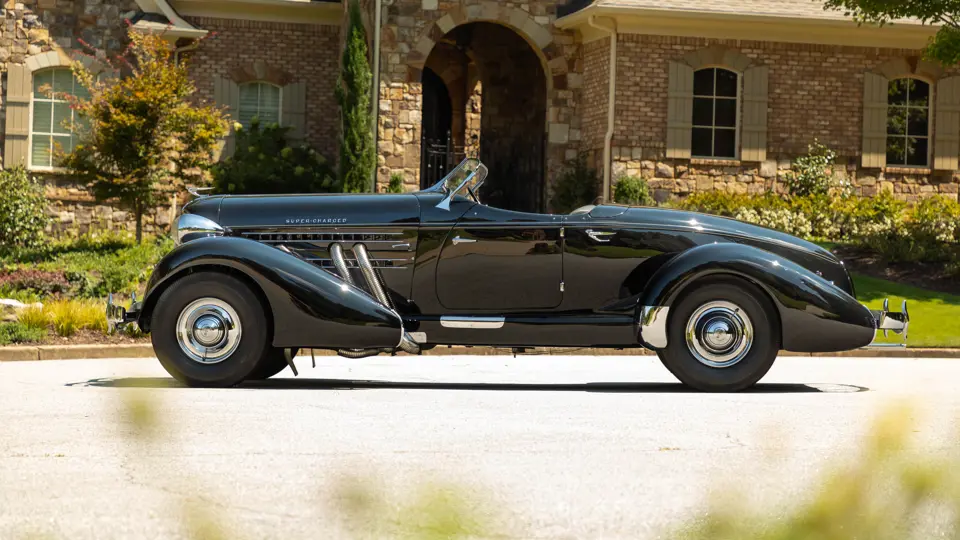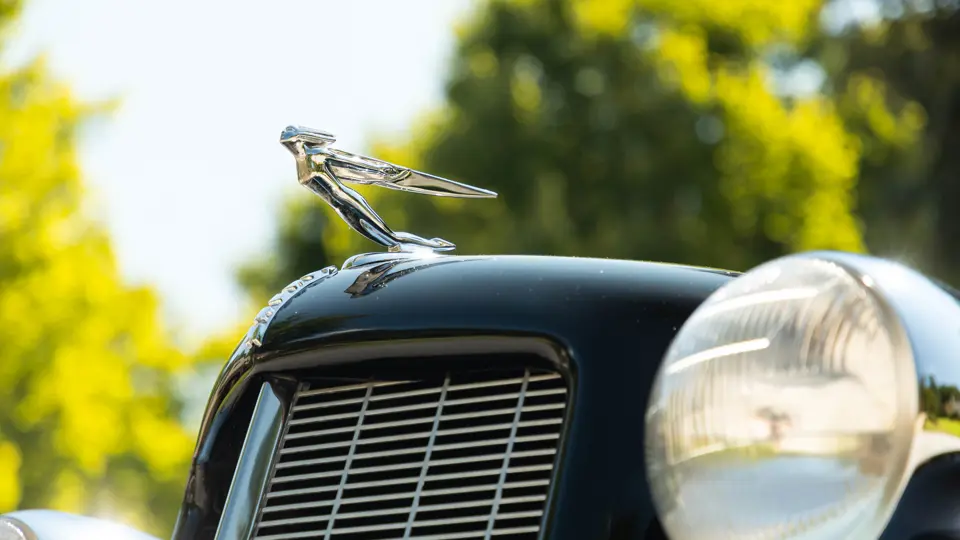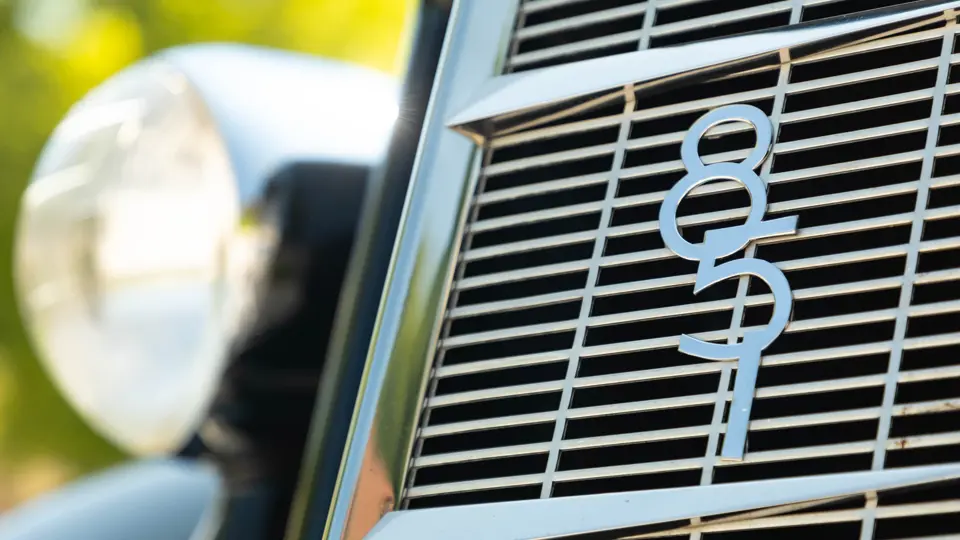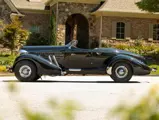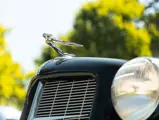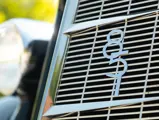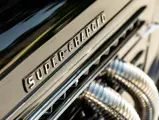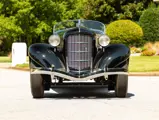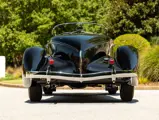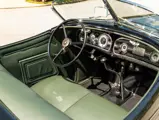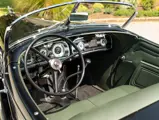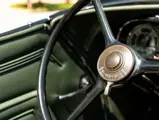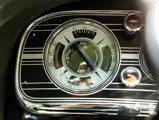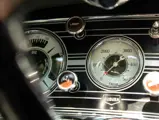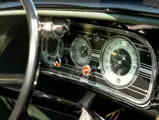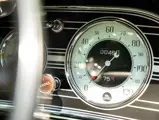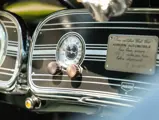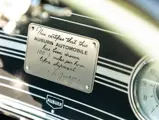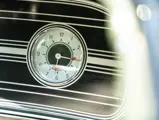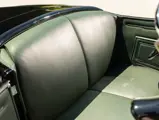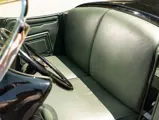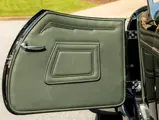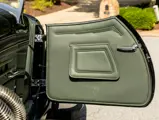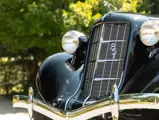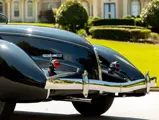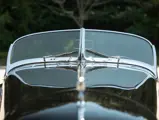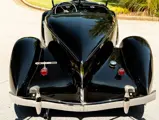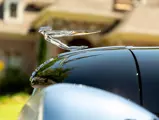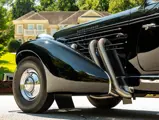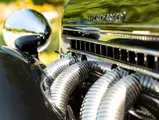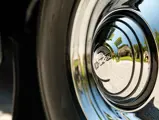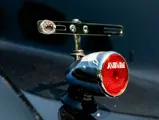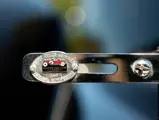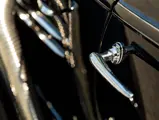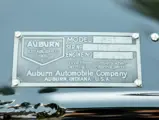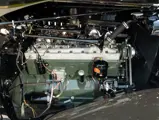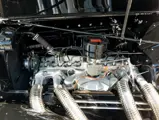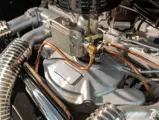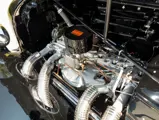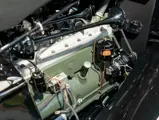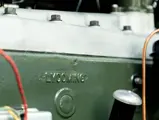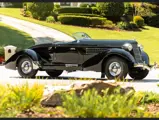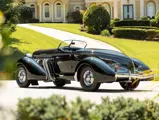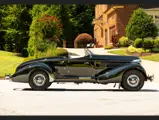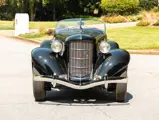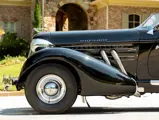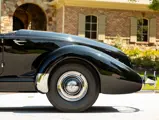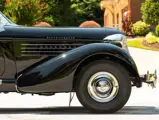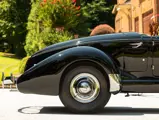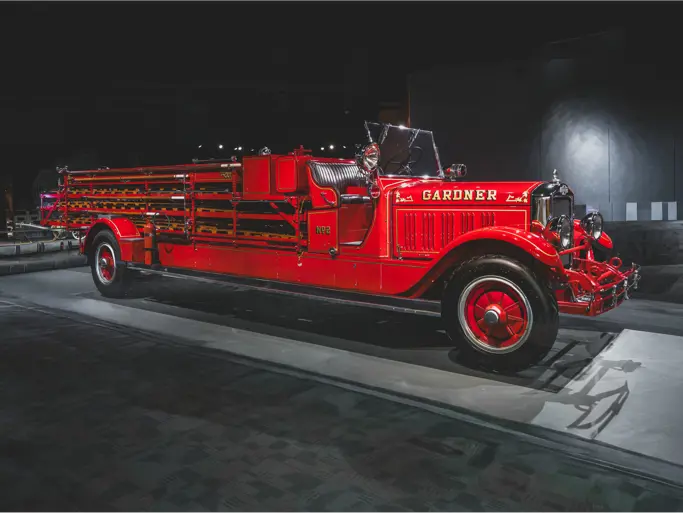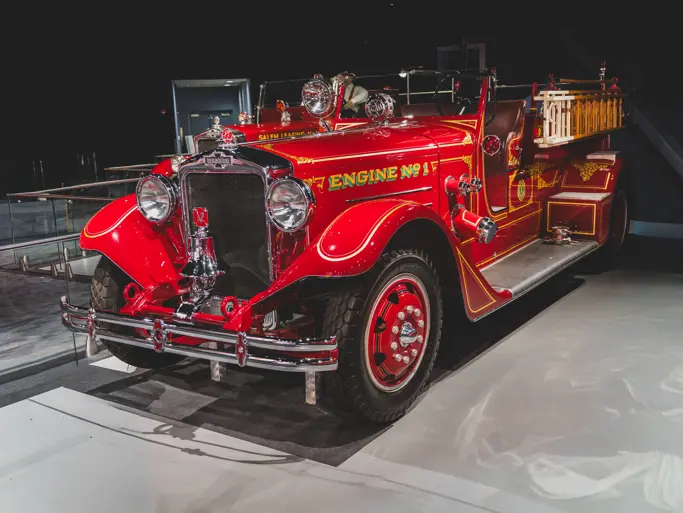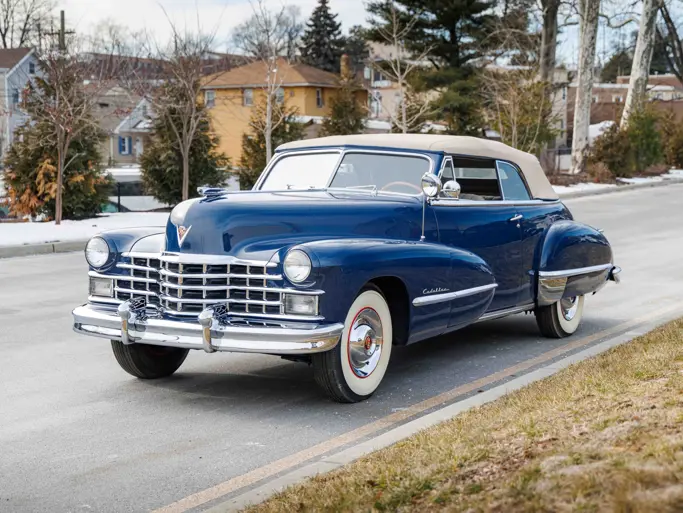
1935 Auburn 851 Supercharged Speedster
{{lr.item.text}}
$891,000 USD | Sold
Offered From The Collection of Robert Thayer
{{bidding.lot.reserveStatusFormatted}}
- Offered from the Collection of Robert Thayer
- Well-maintained concours restoration in stunning colors
- Classic Car Club of America (CCCA) Full Classic
- Auburn Cord Duesenberg (ACD) Club Certified Category 1 (A-150)
THE AUBURN SPEEDSTER
In the days when Bugattis crossed France and 4½-Litre Bentleys tore through the British countryside, the American equivalent was the Auburn speedster. Indiana’s Auburn Automobile Company revealed its first version of this dashing body style, inspired by a Duesenberg show car, for the 1928 model year and would offer variations on the theme through to the end of production in 1936.
The 1935–1936 speedsters were designed by the legendary Gordon Buehrig. Audacious by the standards of their time, they featured curvaceous bodywork with a straight hood line shooting back from the radiator to a sharply vee’d windshield, down between pontoon fenders, over gently sloping doors, and descending in a graceful taper to the rear bumper. It was this distinctive rear design, elegantly outlined by chrome and striping, that gave the speedster its everlasting nickname, “the Boattail.”
Underneath, the speedster shared the same exciting mechanicals as other supercharged Auburn models. The glistening chrome side exhaust heralded the presence of a Schwitzer-Cummins blower, which boosted the horsepower of the Auburn straight-eight to 150 from a normally aspirated reading of 115. The 150 horsepower was sent to a Columbia dual-ratio rear axle, standard equipment on the supercharged models, which provided two ratios for each gear, one low and one high. The ratios could be changed as often as desired while at very low speeds or at a stop by moving the switch in the center of the steering wheel. This provided the supercharged Auburn with much greater flexibility, making it a true “driver’s car,” ideal for both purring through crowded cities and roaring down country lanes.
Each speedster bore on its dashboard a plaque inscribed, “This certifies that this AUBURN AUTOMOBILE has been driven 100.8 miles per hour before shipment.” It was signed by David “Ab” Jenkins, the speed-record driver who achieved some of his greatest successes at Bonneville behind the wheel of a late Auburn speedster. Of course, the plaques were merely factory decoration installed on the production line. Then again, no one who has driven these cars since has ever complained about a lack of speed!
SERIAL NUMBER 851 33734 E
The speedster offered here has had its ownership history traced back to the early 1950s, when it was owned by Dr. Fred Zaidan of Pennsylvania. For the next 46 years the car remained in the Zaidan family’s hands, though from 1985 to 1988 it was exhibited, on loan, in the Auburn Cord Duesenberg Automobile Museum in Auburn, Indiana. Finally, it was acquired from its long-term owners in 1998 by Hal Bjorklund of Castle Rock, Colorado, a second-generation Auburn and Cord aficionado, who undertook a complete restoration in the hands of noted Auburn specialist Mark Clayton. In 2004 the dramatic speedster received its Primary First Place at the ACD Club National Reunion in Auburn, Indiana, followed by a Senior First Place and Best of Show at the Club’s West Coast Meet that same year. It was also Certified Category 1 by the ACD Club, an important and significant achievement for a speedster.
The car was eventually purchased from Mr. Bjorklund in 2005 by James Covert of Florida, known for his own outstanding stable, then joined Robert Thayer’s distinguished, carefully selected private collection in 2008. It has been selectively shown, including at Pebble Beach in 2009; in 2010 at the CCCA Grand National in Stone Mountain, Georgia, winning its Primary First Prize with a perfect 100-point score; and then at the 2011 Amelia Island Concours d’Elegance where it was honored with Best in Class.
With the restoration well-preserved and unshown in recent years, this exceptional Auburn would of course be warmly welcomed to any number of important concours events, as well as with open arms back to the ACD Club and CCCA awards—or into AACA judging!
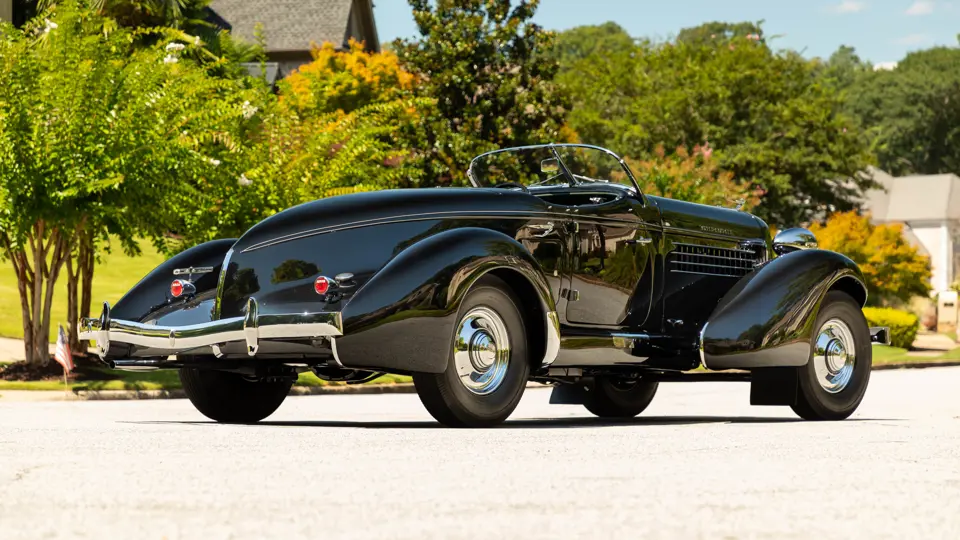

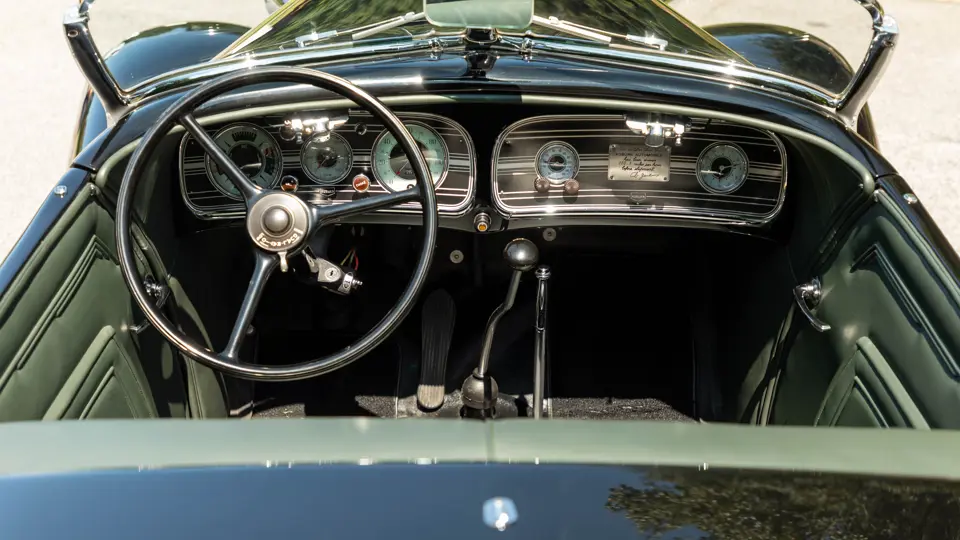

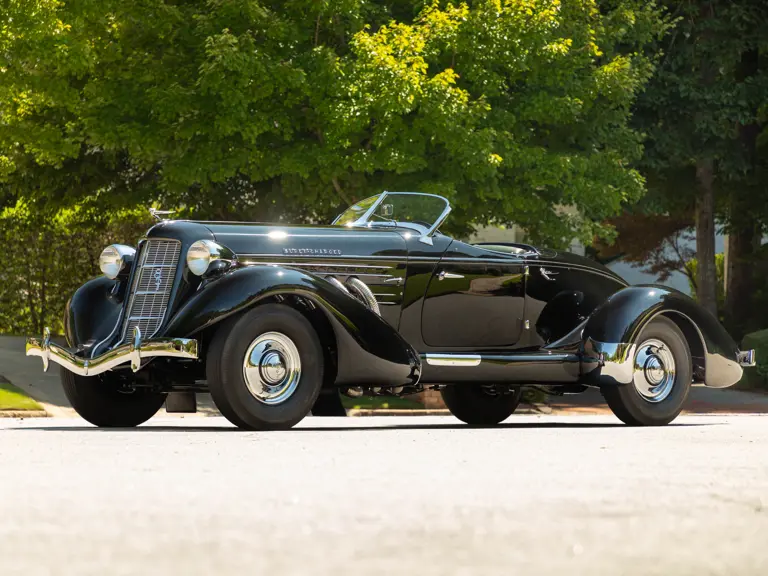
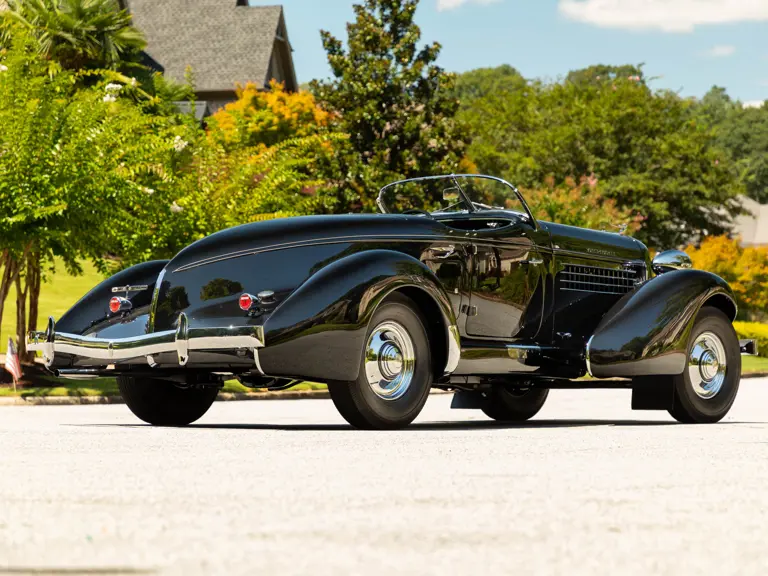
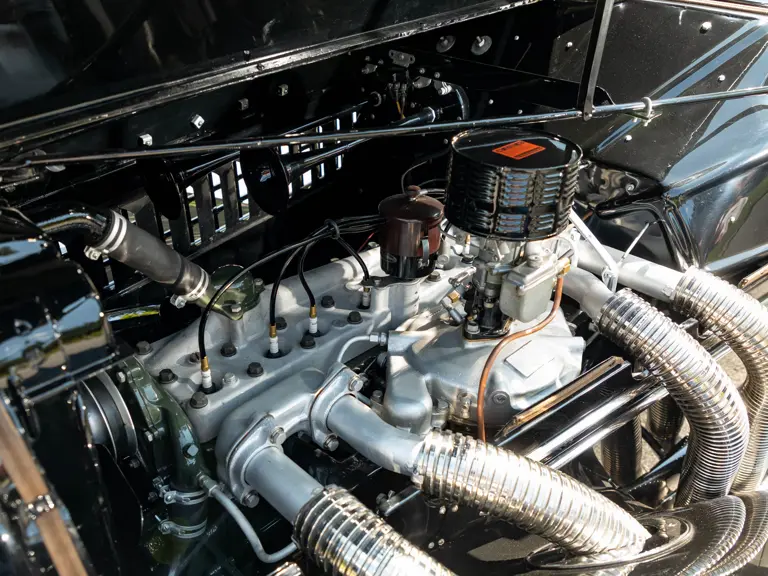
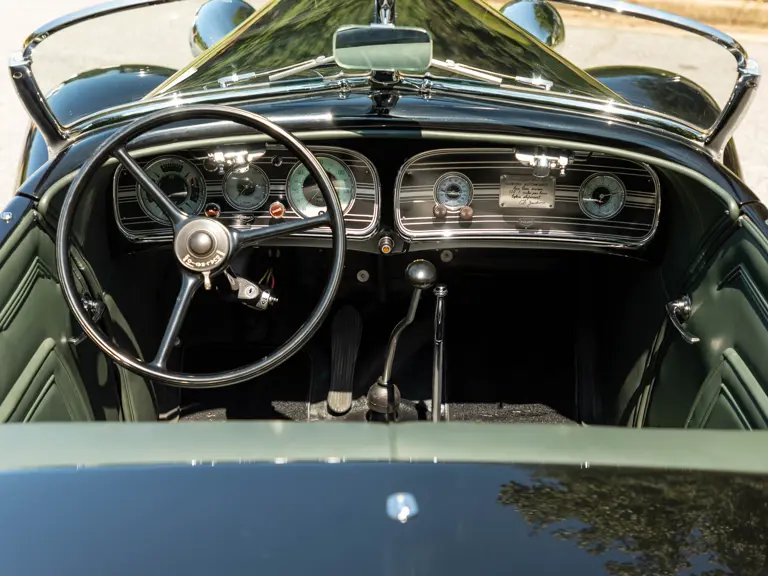
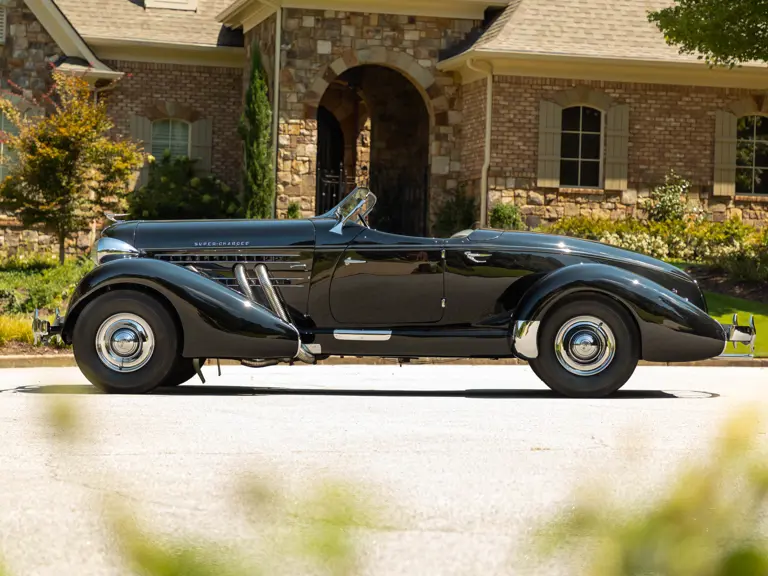
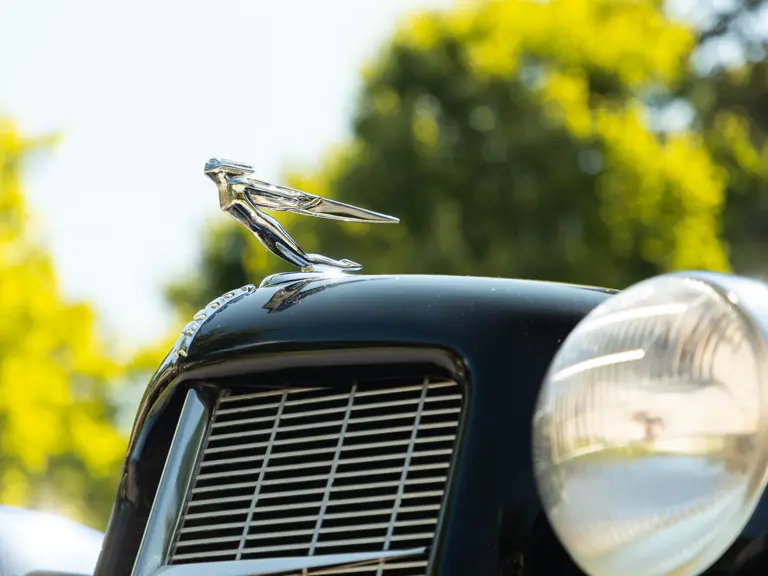
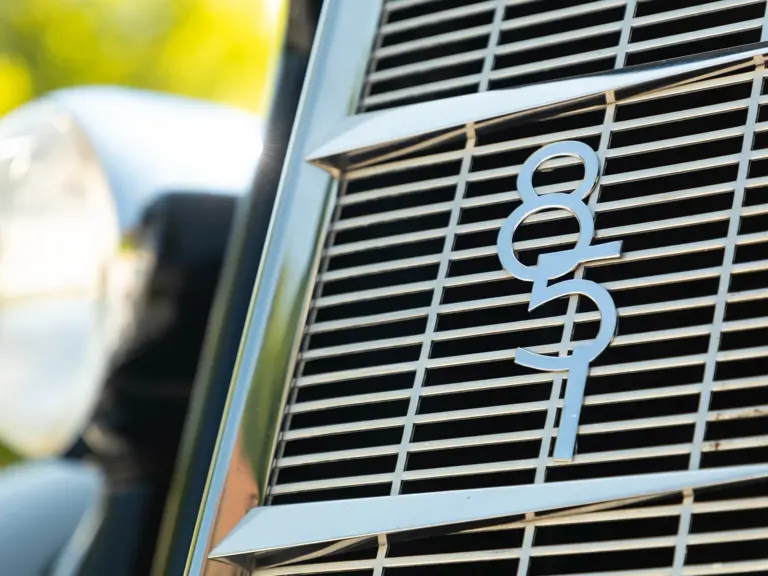

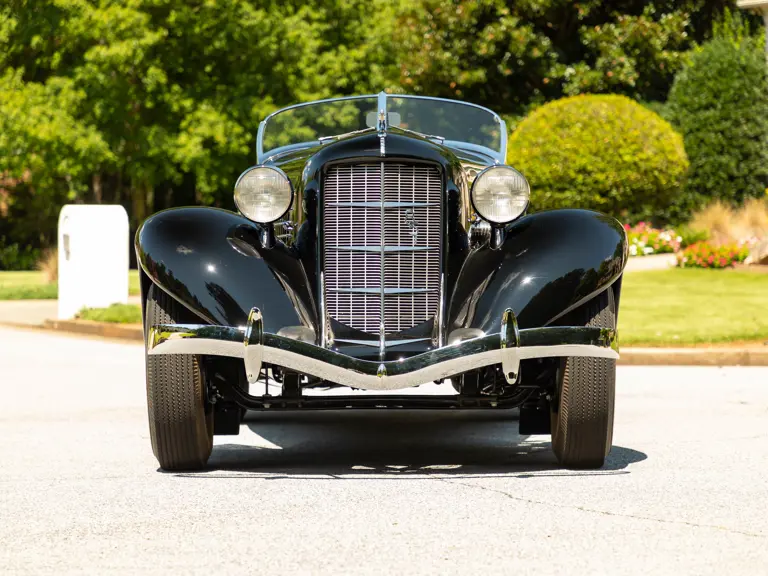
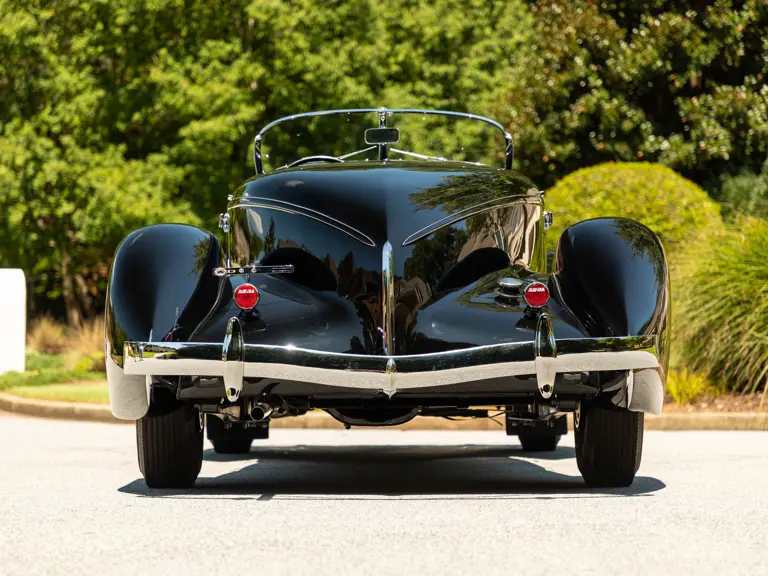
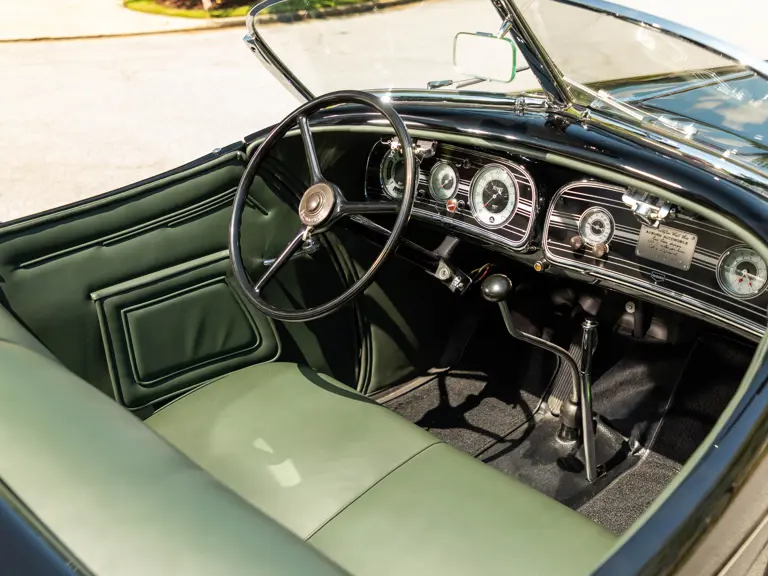
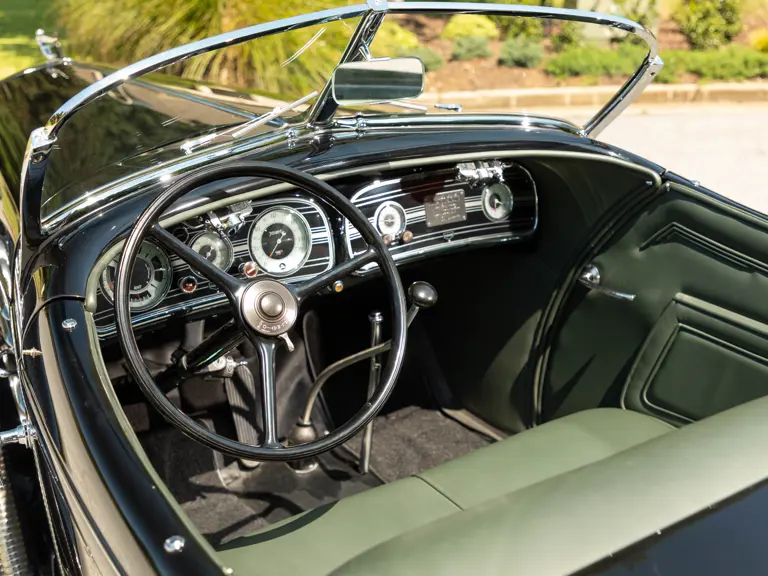
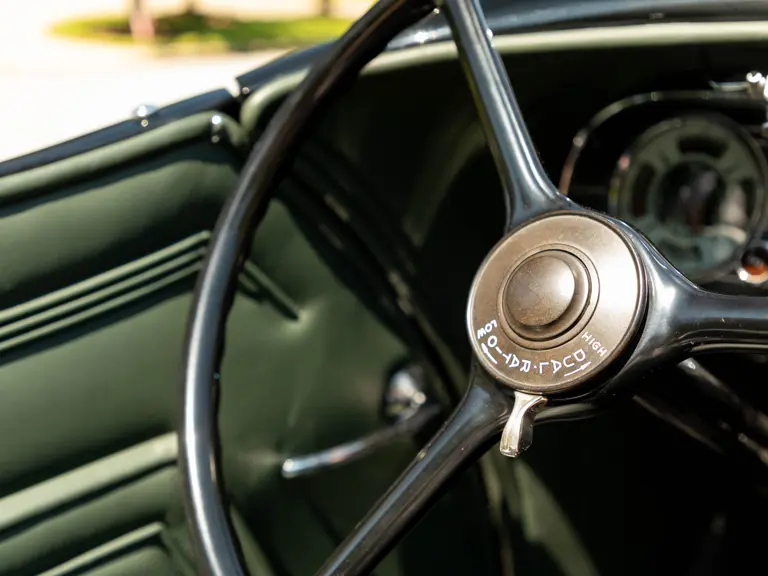
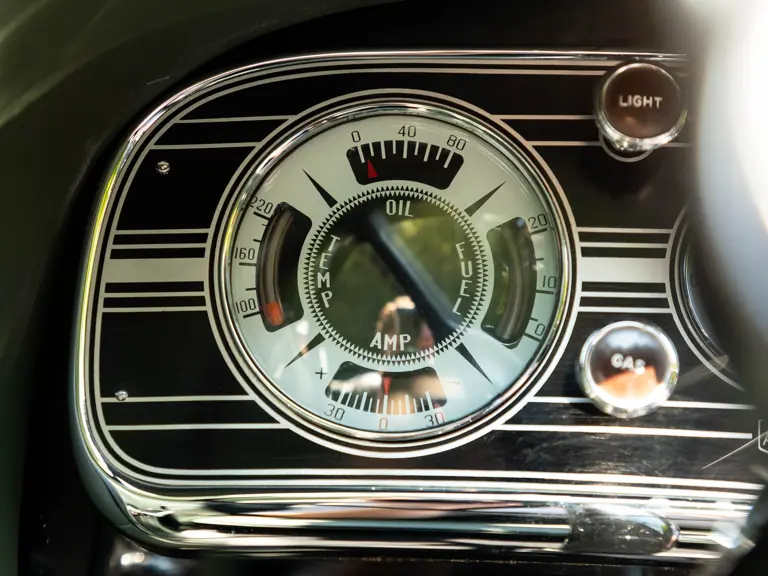
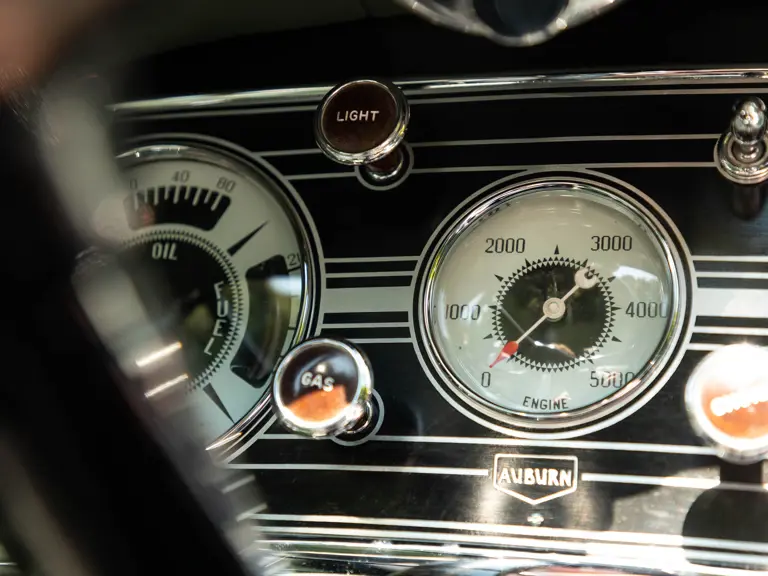
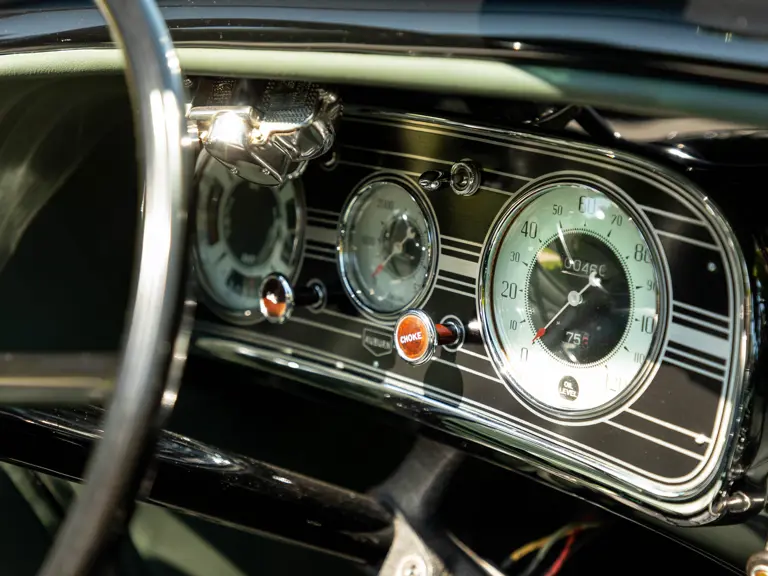
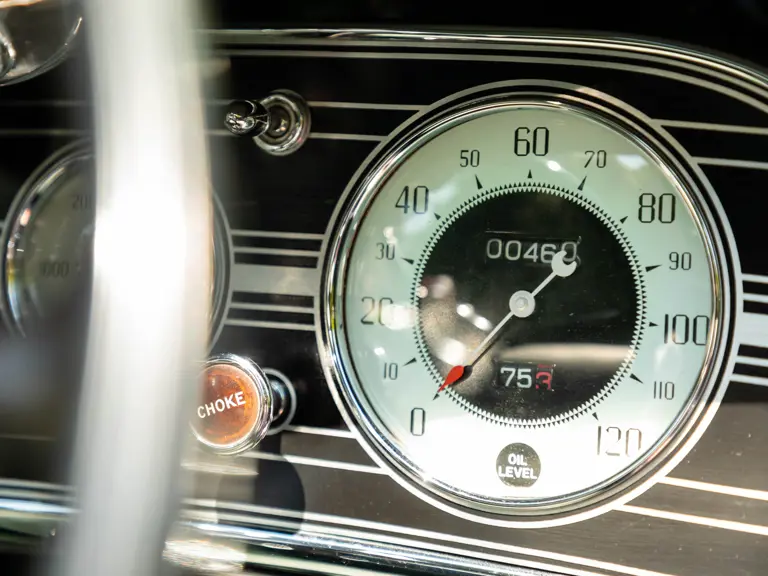
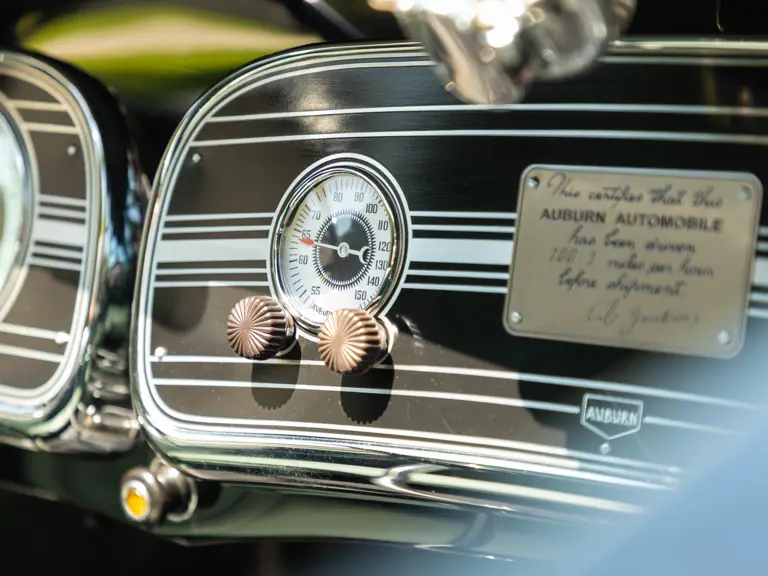
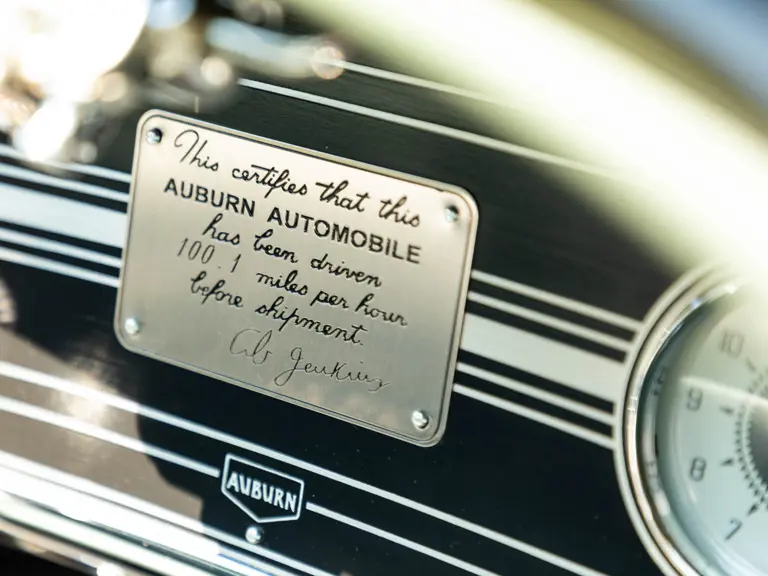
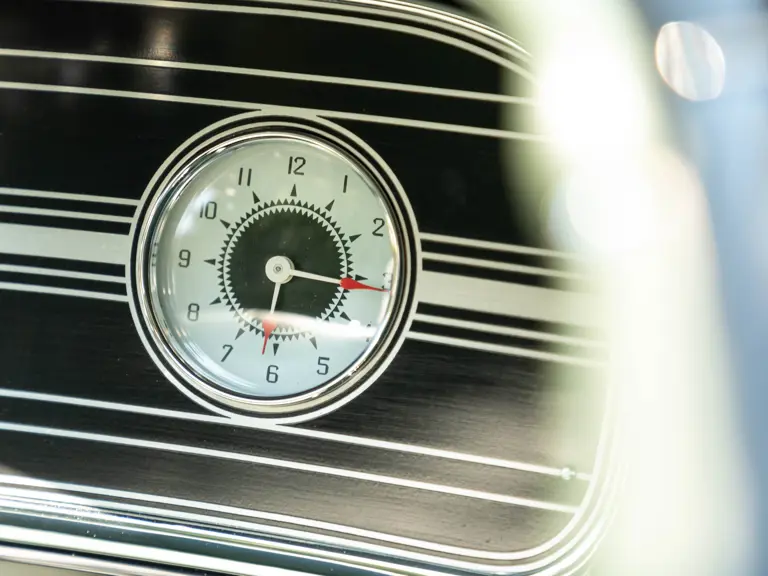
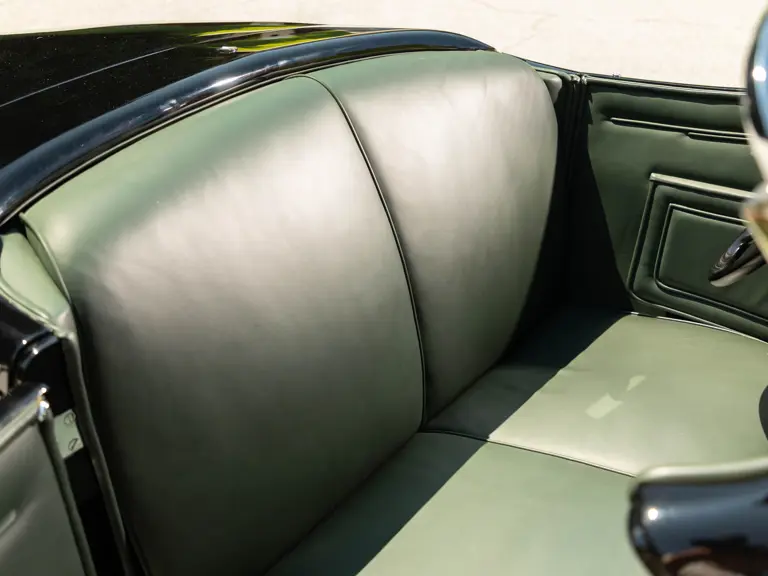
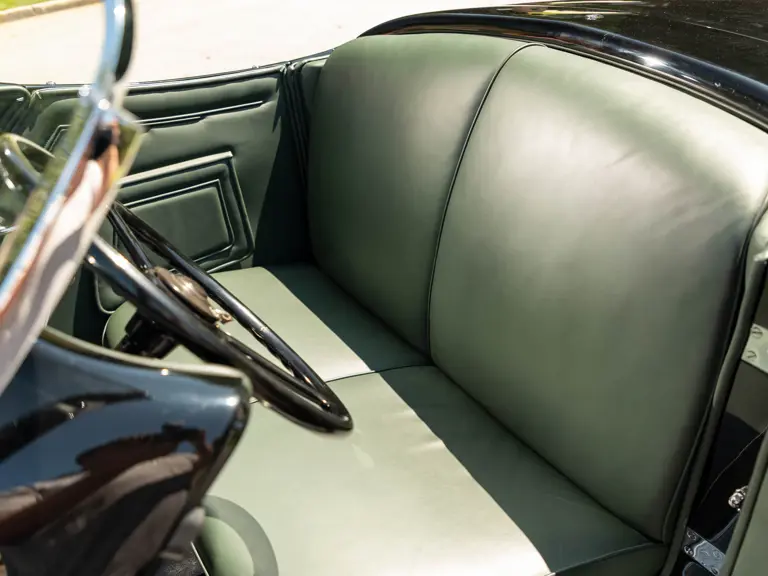
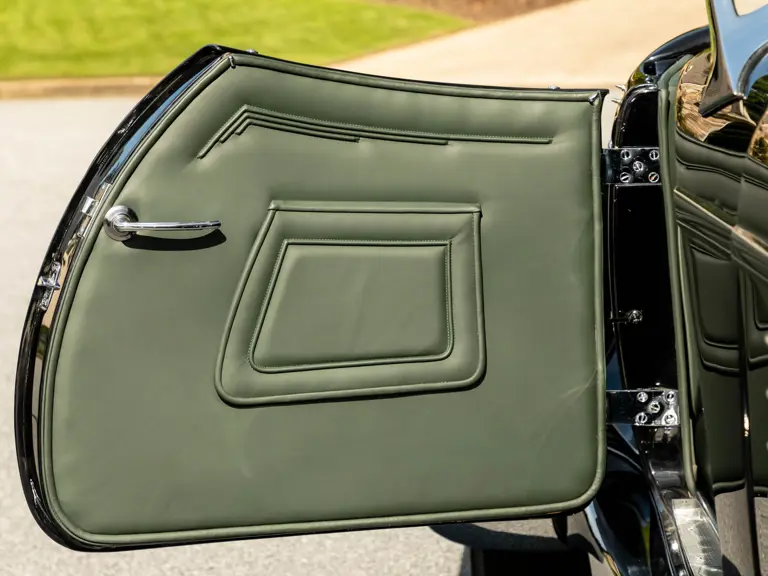
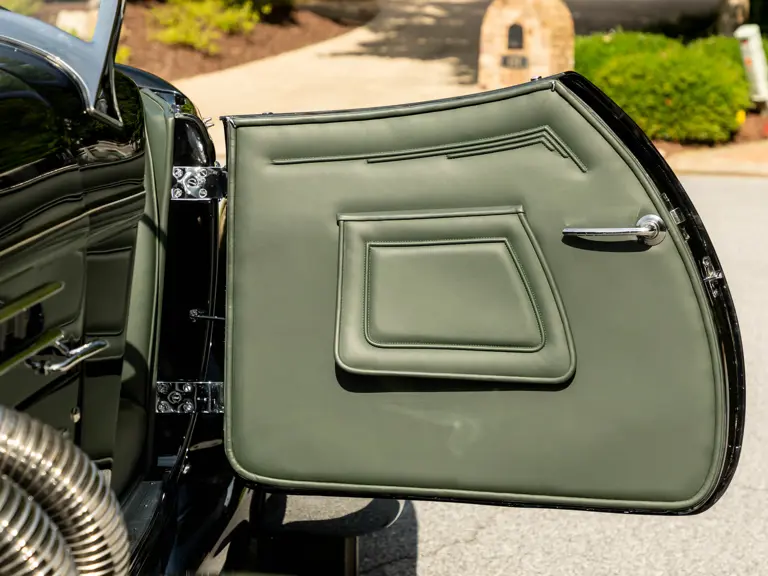
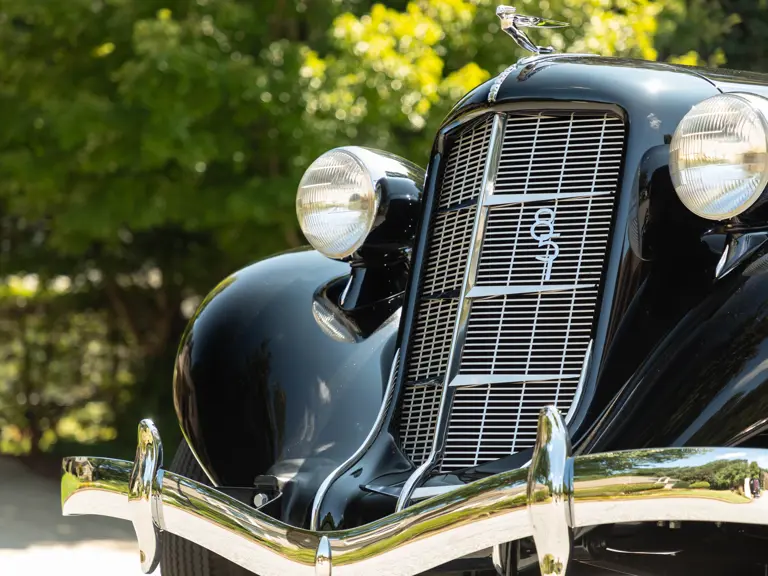
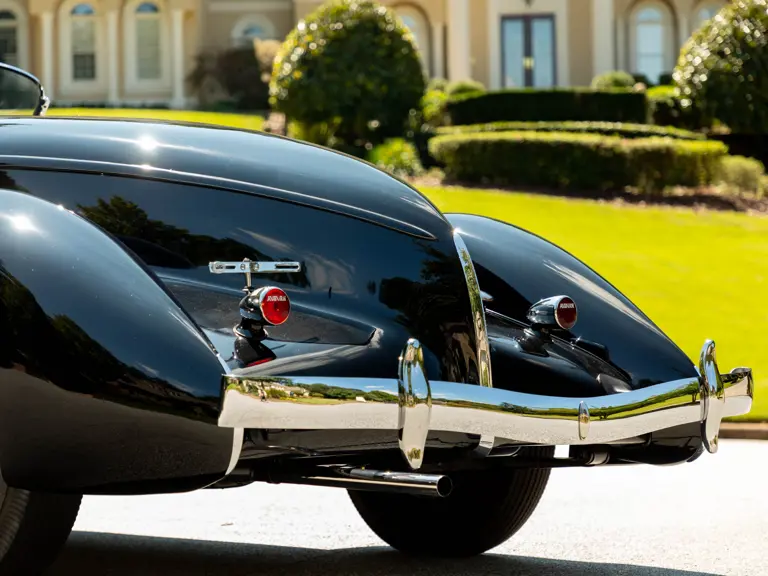
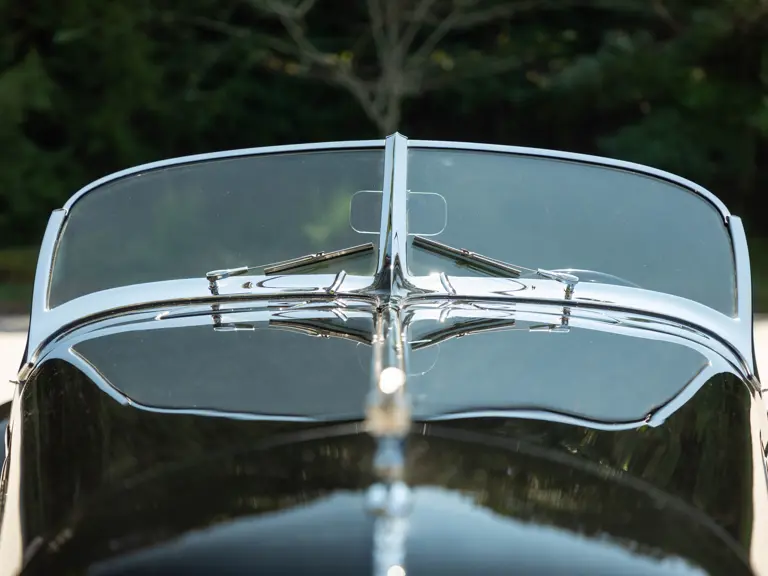
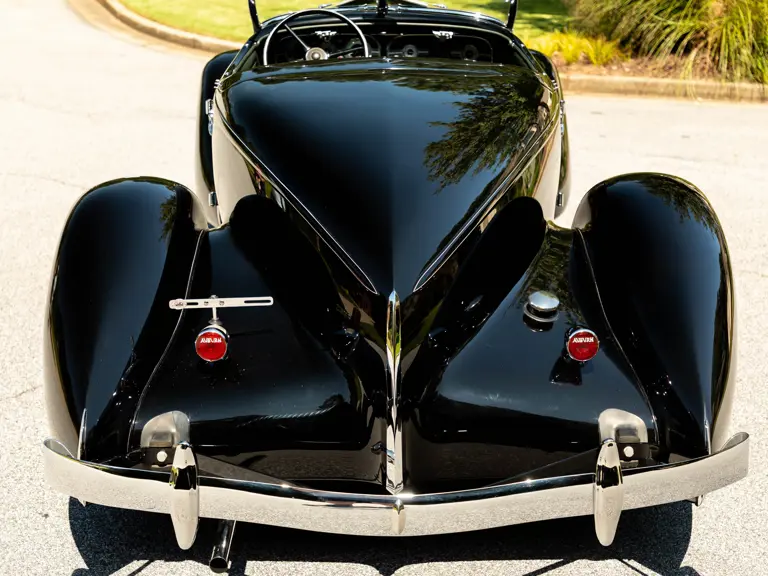
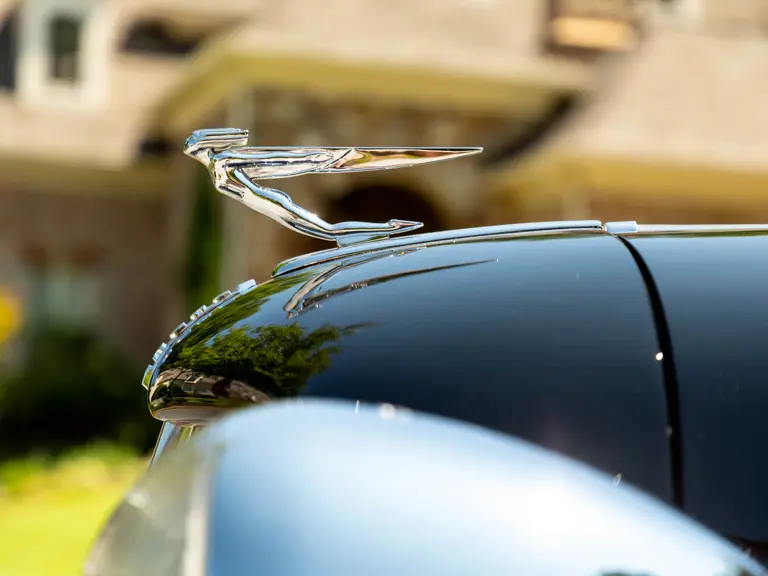
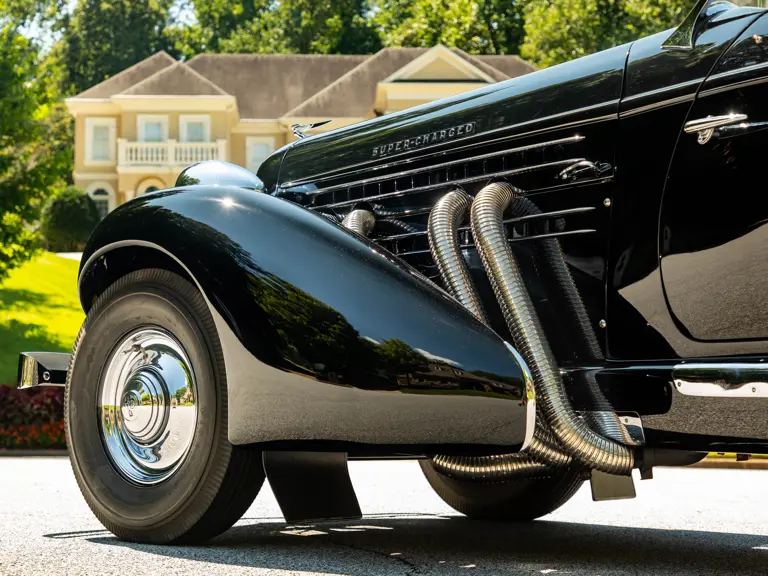
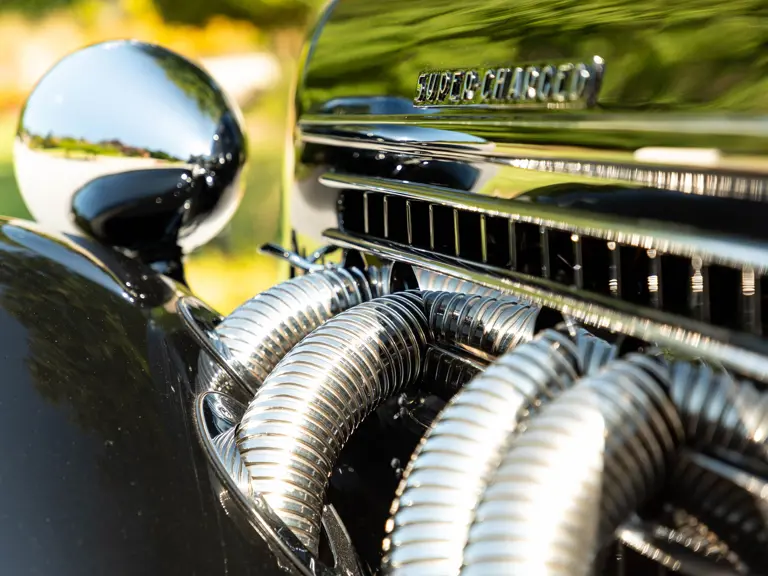
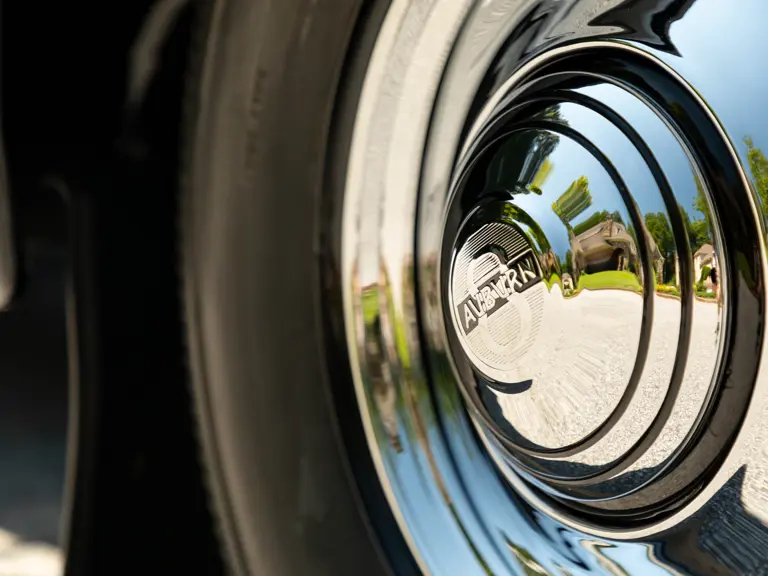
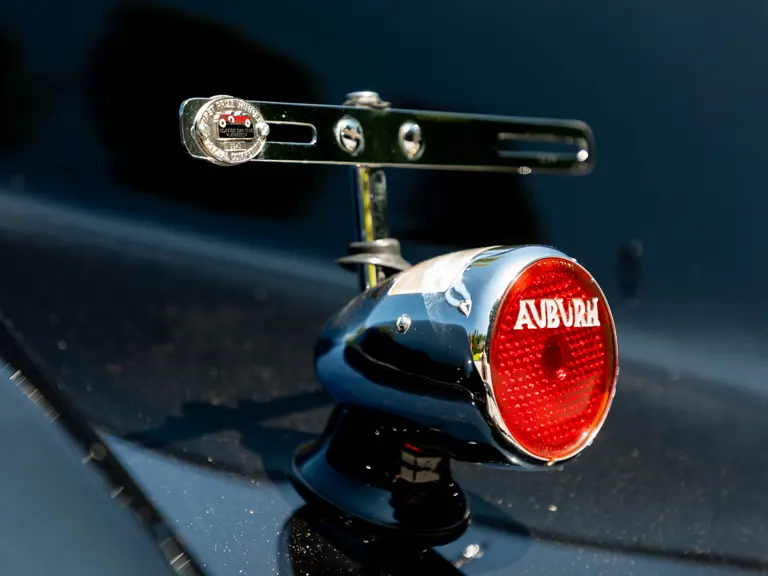
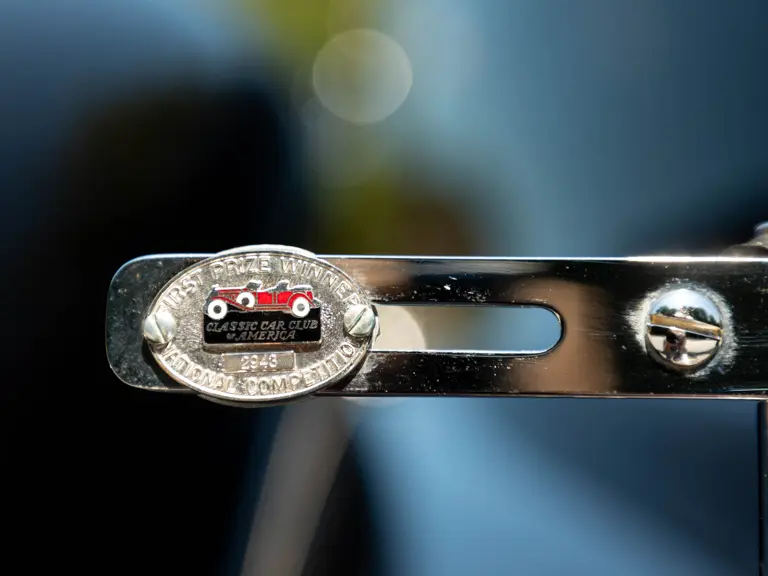
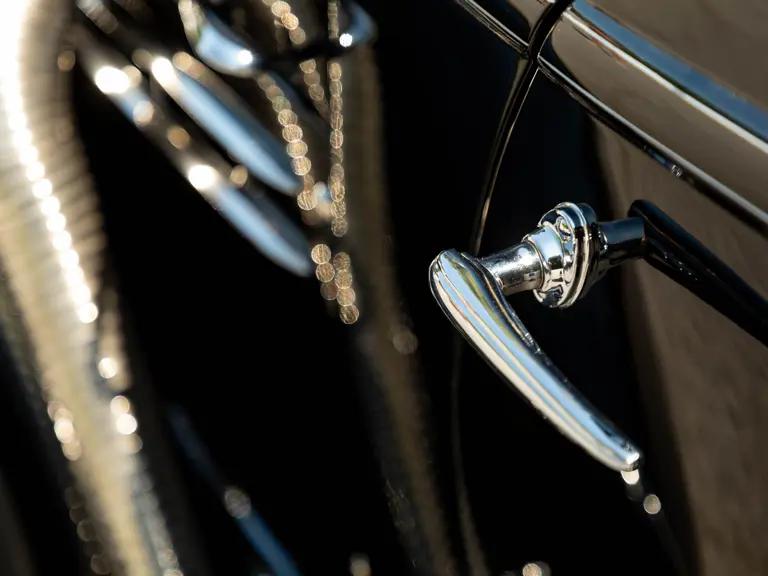
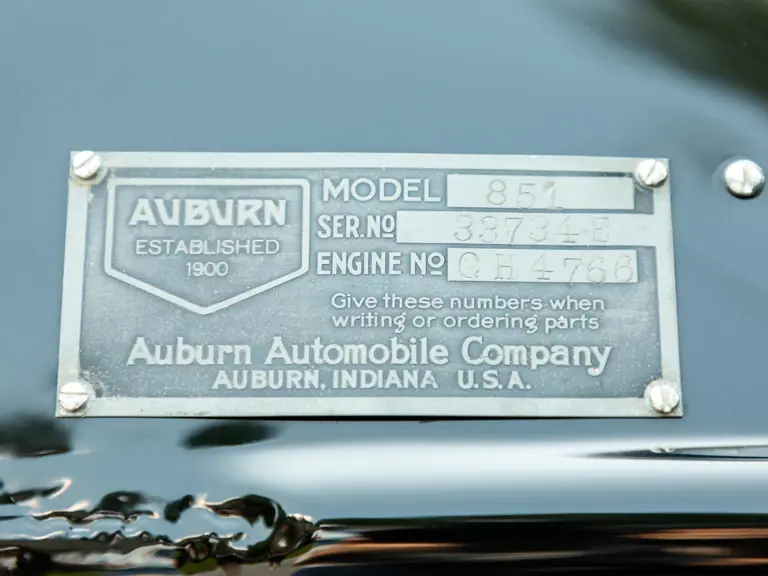
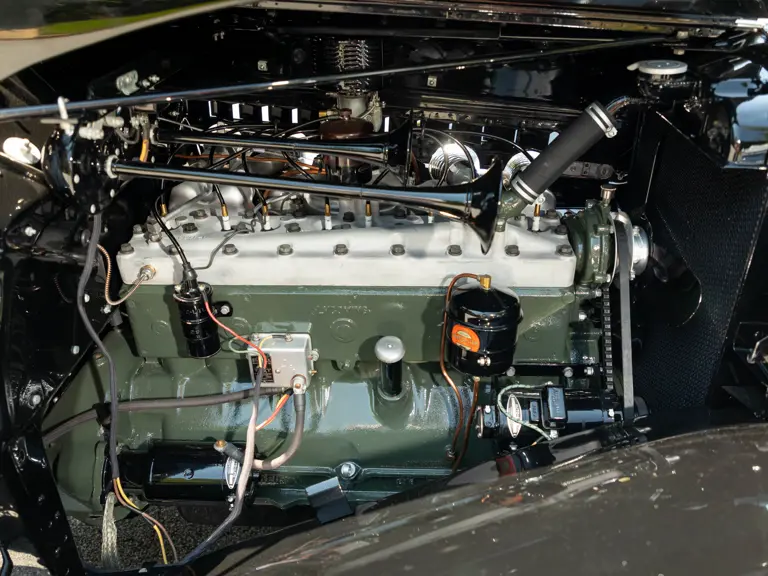
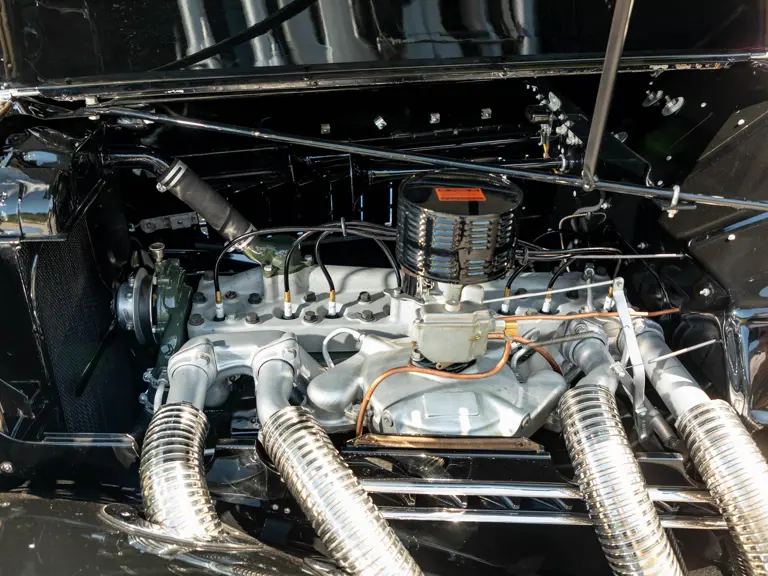
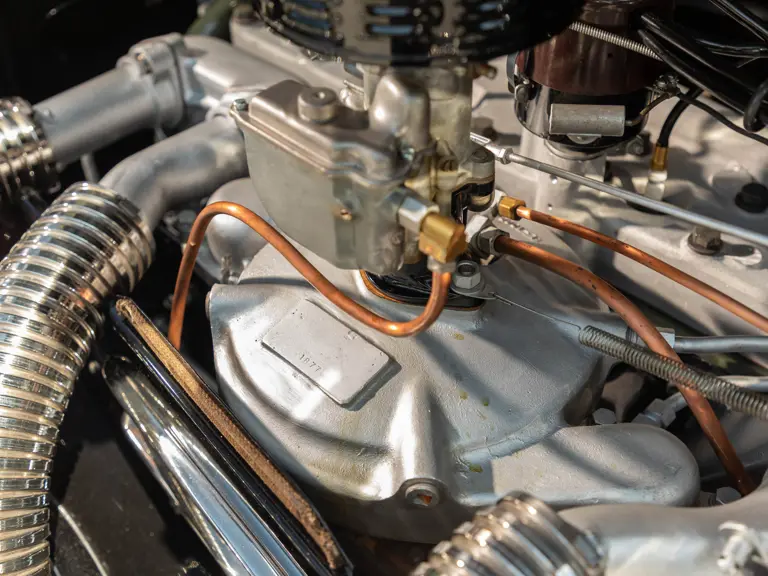
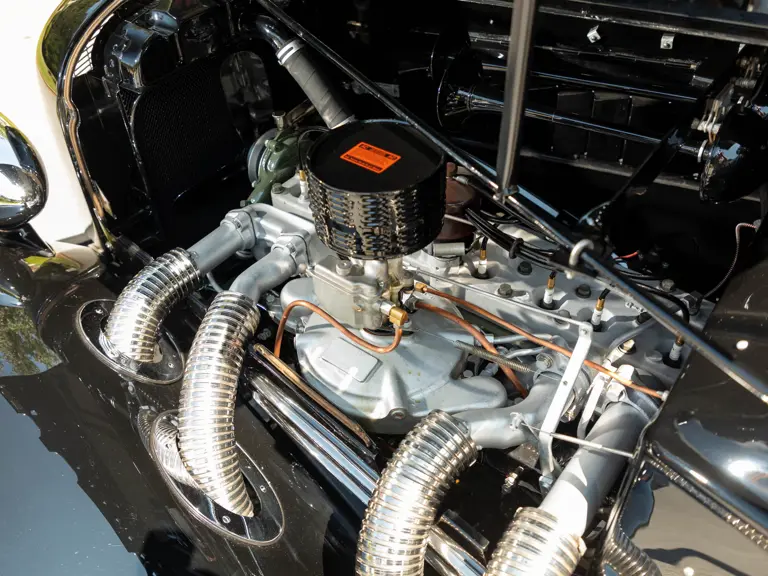
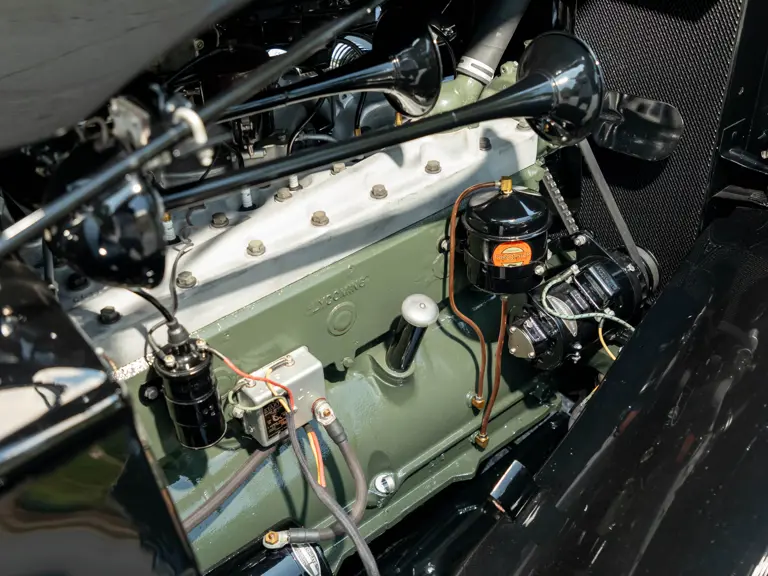
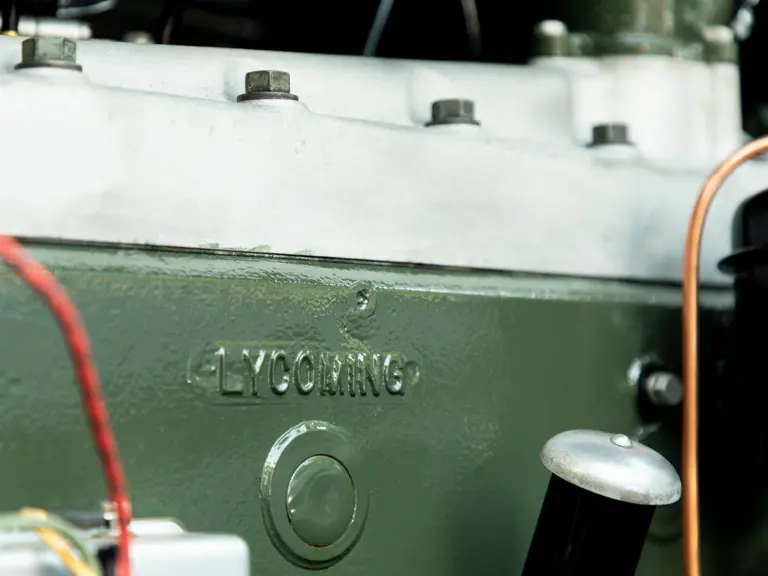
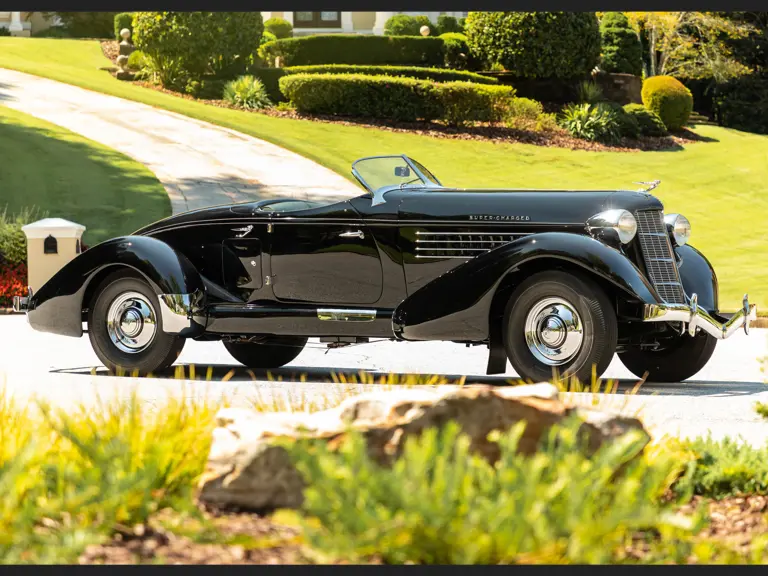
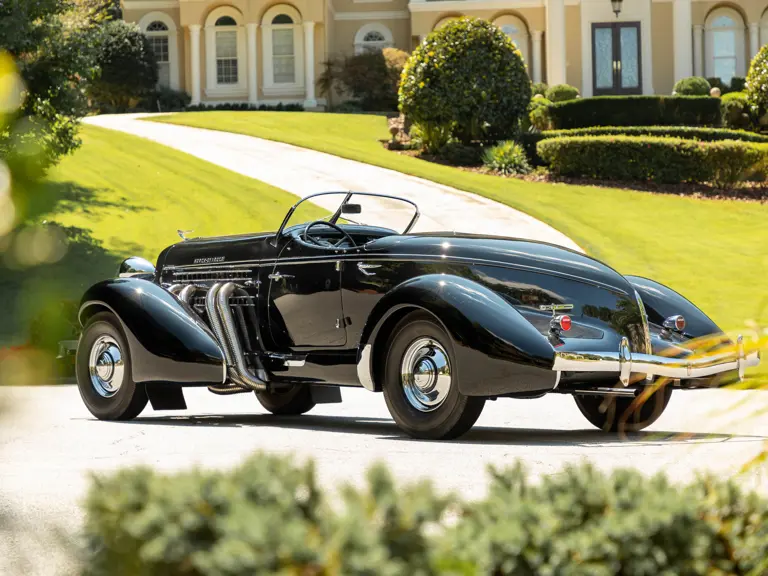
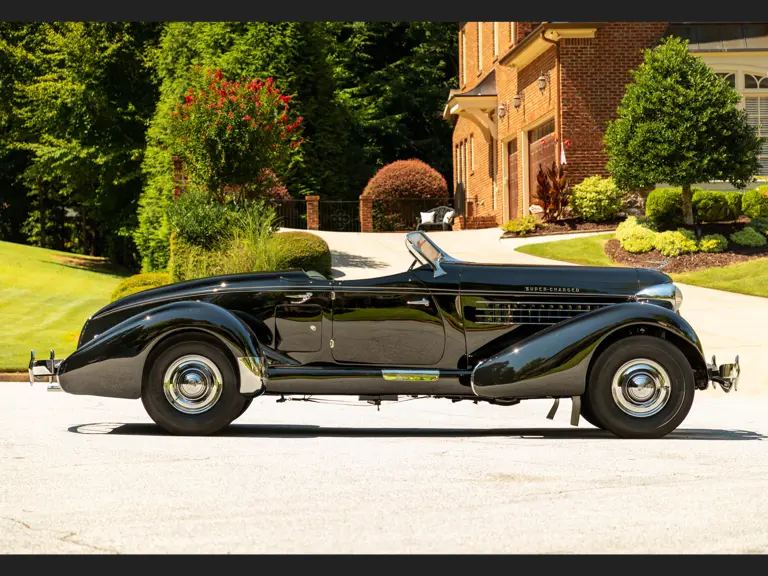
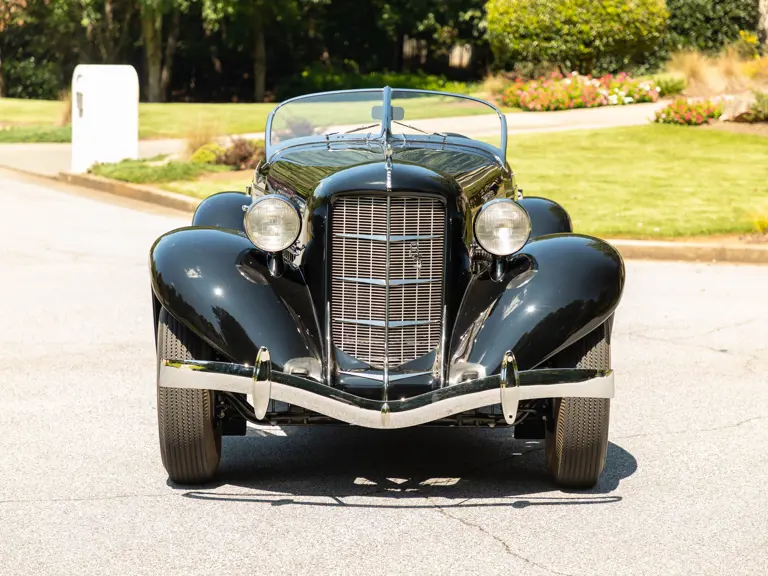
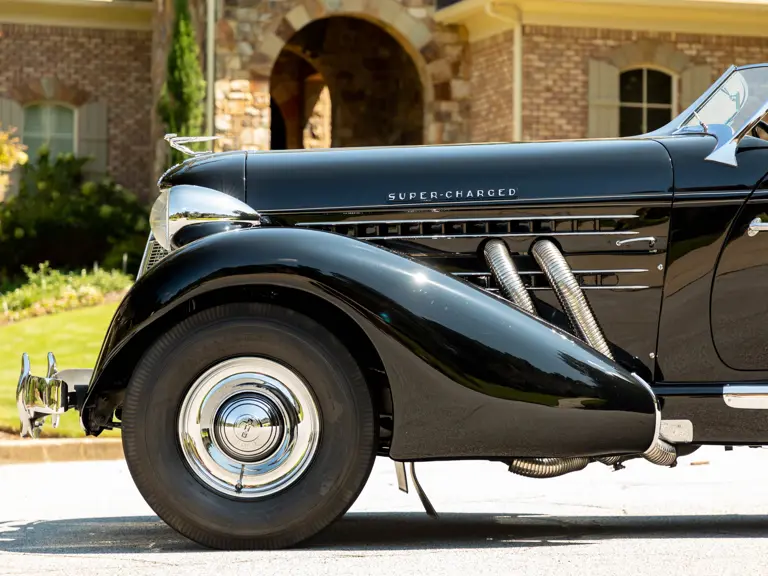
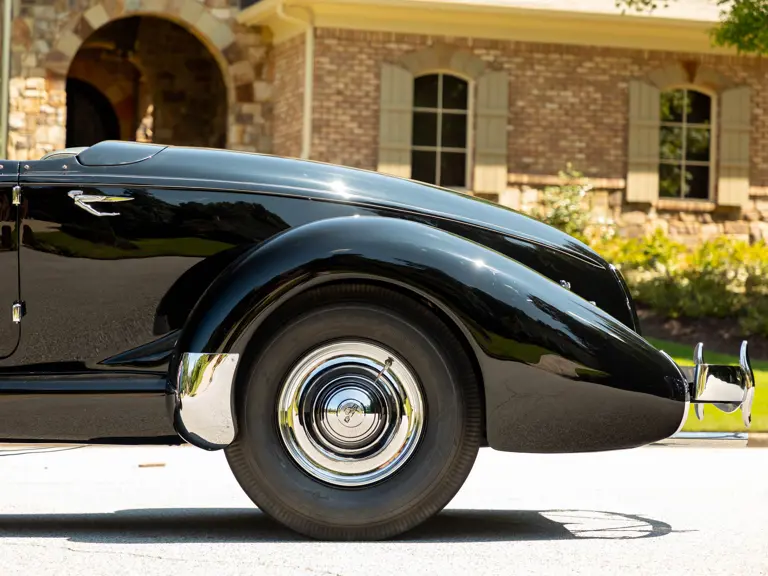
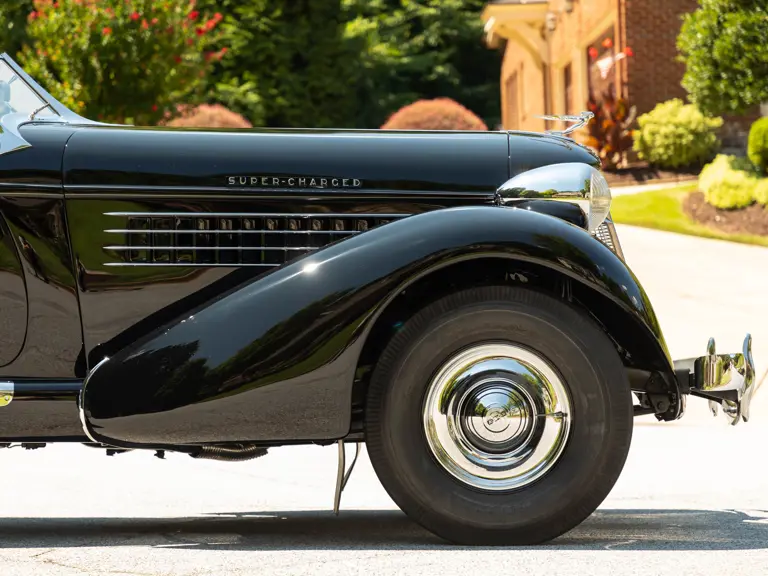
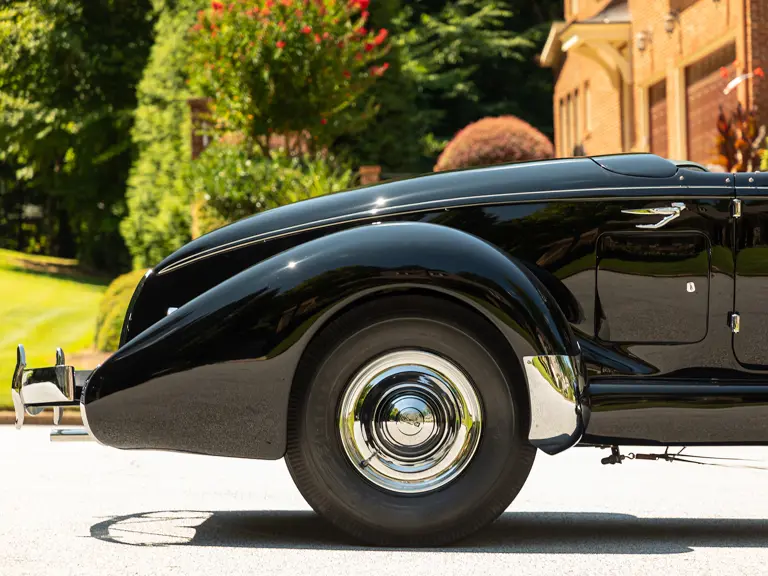
 | Hershey, Pennsylvania
| Hershey, Pennsylvania
